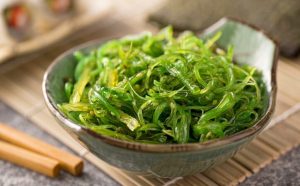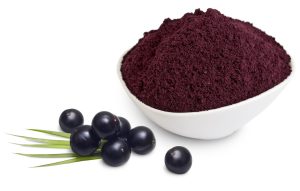Table of Contents
Introduction
The Mediterranean diet has long been lauded for its health benefits, promoting everything from heart health to longevity. Central to this diet are Mediterranean superfoods—nutrient-rich foods that offer significant health benefits. These superfoods not only form the backbone of a nutritious diet but also pack a punch when it comes to essential vitamins, minerals, antioxidants, and healthy fats. For those looking to enhance their diet and lifestyle, incorporating Mediterranean superfoods can be an excellent choice. This article delves into the world of Mediterranean superfoods, exploring their nutritional benefits, how to incorporate them into your diet, and the scientific evidence supporting their health-promoting properties.
Thank you for reading this post, don't forget to subscribe!Chapter 1: Understanding Mediterranean Superfoods
What Are Mediterranean Superfoods?
Mediterranean superfoods are foods native to the Mediterranean region, known for their dense nutritional profiles. These foods often form the cornerstone of the Mediterranean diet, which emphasizes plant-based eating, healthy fats, and lean proteins. Unlike fad diets, the Mediterranean diet is backed by decades of research showcasing its effectiveness in promoting heart health, reducing inflammation, and supporting overall well-being.
Key Characteristics of Mediterranean Superfoods
- Rich in Nutrients: High in vitamins, minerals, antioxidants, and essential fatty acids.
- Natural and Whole: Minimally processed, focusing on whole foods.
- Balanced Macronutrient Profile: Includes healthy fats, protein, and carbohydrates.
- Anti-inflammatory Properties: Helps reduce chronic inflammation, a precursor to many diseases.
Examples of Mediterranean Superfoods commonly include olives, nuts, seeds, legumes, fruits, vegetables, fish, and whole grains.
Chapter 2: Olive Oil – The Liquid Gold
Why Olive Oil is Essential
Olive oil, particularly extra virgin olive oil, is often referred to as “liquid gold” for its potent health benefits. Rich in monounsaturated fats and antioxidants, it plays a crucial role in Mediterranean cuisine.
Nutritional Benefits of Olive Oil
- Heart Health: Olive oil helps lower LDL (bad) cholesterol while raising HDL (good) cholesterol.
- Anti-inflammatory: Contains oleocanthal, a compound with anti-inflammatory properties.
- Antioxidant-Rich: Loaded with antioxidants such as vitamin E and polyphenols.
Incorporating Olive Oil into Your Diet
- Salad Dressings: Whisk together olive oil, lemon juice, garlic, and herbs for a simple yet nutritious dressing.
- Cooking: Use olive oil for sautéing vegetables or as a base for marinades.
- Drizzling: Add a splash of olive oil over cooked dishes like pasta or grilled meats for added flavor and nutrition.
Chapter 3: Nuts and Seeds – Compact Nutrient Powerhouses
Benefits of Nuts and Seeds
Nuts and seeds like almonds, walnuts, chia seeds, and flaxseeds are staple Mediterranean superfoods.
Nutritional Profile:
- Healthy Fats: High in omega-3 and omega-6 fatty acids.
- Proteins and Fibers: Excellent sources of plant-based protein and dietary fiber.
- Minerals: Rich in magnesium, selenium, and zinc.
How to Incorporate Nuts and Seeds
- Snacks: A handful of nuts makes for a nutritious and satisfying snack.
- Toppings: Sprinkle chia seeds or flaxseeds on yogurt or oatmeal.
- Baking: Replace flour with almond meal in baking recipes for added moisture and nutrition.
Research and Benefits
According to a study published in the New England Journal of Medicine, including nuts in your diet can significantly reduce the risk of heart disease, thanks to their beneficial fats and anti-inflammatory properties.
Chapter 4: Fish and Seafood – Omega-3 Rich Superfoods
The Importance of Fish and Seafood
Fish and seafood are vital components of the Mediterranean diet, particularly fatty fish like salmon, mackerel, and sardines.
Key Nutrients:
- Omega-3 Fatty Acids: Essential for brain and heart health.
- Protein: High-quality, lean source of protein.
- Vitamins and Minerals: Rich in vitamin D, B vitamins, selenium, and iodine.
Incorporating Fish into Your Diet
- Grilled Fish: Marinate and grill fish for a flavorful, heart-healthy meal.
- Fish Salad: Mix tuna or salmon with leafy greens for a nutrient-dense salad.
- Seafood Pasta: Combine shrimp or clams with whole grain pasta and olive oil for a balanced dinner.
Health Benefits
A study published in the American Journal of Clinical Nutrition highlighted that regular consumption of fish can lower the risk of chronic diseases, including heart disease and stroke, due to the high levels of omega-3 fatty acids.
Chapter 5: Fruits and Vegetables – Vital Sources of Antioxidants
The Role of Fruits and Vegetables
Fruits and vegetables are abundantly used in Mediterranean cooking, providing essential vitamins, minerals, and antioxidants.
Nutritional Profile:
- Vitamins: High in vitamins A, C, and K.
- Minerals: Rich in potassium, magnesium, and iron.
- Fiber: Essential for digestive health.
Popular Mediterranean Superfoods in Fruits and Vegetables
- Tomatoes: Rich in lycopene, a powerful antioxidant.
- Bell Peppers: High in vitamin C and various carotenoids.
- Spinach and Kale: Nutrient-dense leafy greens with high levels of vitamins and minerals.
- Berries: Packed with antioxidants and fiber.
How to Include in Your Diet
- Salads: Mix various fruits and vegetables for a nutrient-packed salad.
- Smoothies: Blend fruits and leafy greens for a refreshing and nutritious drink.
- Roasting: Roast vegetables with olive oil for a tasty side dish.
Scientific Backing
Research from the Harvard School of Public Health shows that diets rich in fruits and vegetables can lower the risk of several chronic diseases due to their high fiber, vitamin, and antioxidant content.
Frequently Asked Questions
1. What are some easy Mediterranean superfoods to add to my diet?
Some easy additions include olive oil, nuts and seeds, whole grains like quinoa, and fresh fruits and vegetables.
2. Can Mediterranean superfoods help with weight loss?
Yes, due to their high nutrient density and satiating properties, Mediterranean superfoods can support weight management and overall health.
3. How often should I consume fish to get the benefits?
Aim to consume fish at least twice a week to reap the benefits of omega-3 fatty acids.
4. Are Mediterranean superfoods suitable for vegetarians?
Absolutely! Many Mediterranean superfoods, such as fruits, vegetables, legumes, nuts, seeds, and whole grains, are plant-based and perfect for vegetarians.
5. Can olive oil be used for high-heat cooking?
While extra virgin olive oil is best used for salads and low to medium-heat cooking, other types of olive oil can be suitable for higher-heat applications.
Conclusion
Incorporating Mediterranean superfoods into your diet is a surefire way to boost your overall health and well-being. From the heart-healthy benefits of olive oil to the anti-inflammatory properties of nuts and seeds, these superfoods offer a simple yet effective approach to nourishment. By including a variety of these nutrient-dense foods in your daily meals, you’ll be well on your way to achieving a balanced and healthy lifestyle. Embrace the richness of the Mediterranean diet and experience the profound health benefits that have been enjoyed by Mediterranean populations for centuries.





